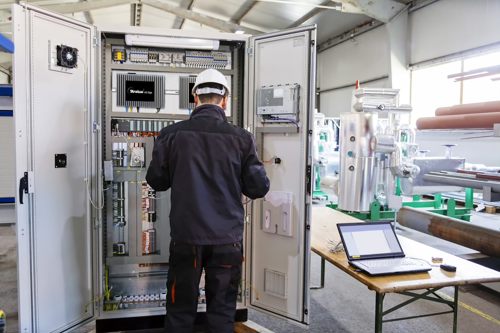2020 AFPM Summit: Q&A: Edge computing in the COVID-19 recovery period
Q&A: Edge computing in the COVID-19 recovery period
CORIE ALLEMAND, Stratus Technologies
As the COVID-19 pandemic has forced businesses to rethink standard operations, many are considering how technologies can help in this upcoming period of recovery. Looking ahead, edge computing will play a significant role in helping organizations foster a nimbler and more efficient operating environment. Hydrocarbon Processing was pleased to discuss these subjects with Corie Allemand, Director of Oil and Gas Business Development at Stratus Technologies.
HP: Do you predict that the increased adoption of technology will last beyond the pandemic?
Allemand: Yes, I do think technology will be one of the main drivers in leading the oil and gas industry back to profitability. This is the third downturn I have experienced in my career, and each time technology has played a role in redefining normal operations. As the industry returns to providing the energy our world requires to function, technology will be engaged in new ways to explore how and where the industry can optimize processes, reduce recurring costs and increase visibility of existing complex operations.
HP: As the oil and gas industry grapples with COVID-19, what role does edge computing play in helping these players through this “survival mode” phase?
Allemand: Edge infrastructure plays a critical role in the movement toward a nimbler and more efficient operating environment in oil and gas. The industry is dealing with historical events that are forcing businesses to rethink standard operations. The ability to expand the vision of employees into remote resources through real-time applications can enhance asset management and efficiency. These tools are designed to create increased visibility and insight into operations and require reliable edge infrastructure to ensure data is always available. Edge computing creates the platform for an increased view into asset performance and the ability of analytical tools to assist with predicting asset behavior.
HP: How can edge computing increase plant/rig safety, especially as facilities face staff shortages and limitations due to the pandemic?
Allemand: Edge computing can play an important role in safety and protection of people and the environment by supporting real-time data collection and processing of measurements where they are created (FIG. 1). The ability to process data with more speed creates an environment that can reduce equipment failures and resulting maintenance requirements when facing the dilemma of limited personnel.

FIG. 1. Digital tools to increase efficiencies through real-time data analysis of operating conditions can enhance the capabilities of operations personnel.
HP: How does edge computing increase the reliability of systems?
Allemand: Edge computing enables real-time analysis of operations data to designed simulation, which is the basis for the digital twin. These real-time simulations running comparatively to actual operating conditions can reveal issues such as inefficiencies, early indication of degraded process performance of assets, or potential risks related to equipment or the environment. The use of data captured in real time and processed at the edge is critical to the performance of predictive maintenance tools. These tools can help to minimize unplanned downtime, which equates to millions of dollars in savings over the course of a given year.
HP: How can oil and gas organizations move forward with planned DX initiatives as they now face financial hardship?
Allemand: Oil and gas organizations should increase their focus on digital as they reassess the current operating profile. Digitalization in the oil and gas space is focused on doing more with less. As the industry finds itself in a low-cost environment having to assess G and A costs, they should look at what the expansion of digital technologies can do to expand the capabilities and view of their personnel. Digital tools to increase efficiencies through real-time data analysis of operating conditions can enhance the capabilities of operations personnel. Edge platforms enable predictive maintenance of critical equipment, allowing for optimization of routine maintenance costs. Real-time analysis of expensive assets can prevent unexpected downtime of critical assets—a multimillion-dollar unplanned expense for oil and gas organizations, according to a study from Kimberlite.
For more information, visit www.stratus.com.
ABOUT THE AUTHOR

CORIE ALLEMAND is the Global Leader for Oil and Gas with Stratus Technologies. He is responsible for the go-to-market strategy and driving the global business. For more than 25 years, he has held various roles, including maintenance technician and services lead for electrical and automation assets on multiple onshore and offshore pipelines, prior to moving into various sales and leadership roles. He spent the last 8.5 years as part of the Siemens Oil and Gas Solutions Team, where he supplied power electronics to global drilling companies, topside power solutions for offshore production, Subsea connectivity solutions, as well as various pipeline solutions and applications to the midstream market. Mr. Allemand holds a BS degree in business management and an MBA.






Comments